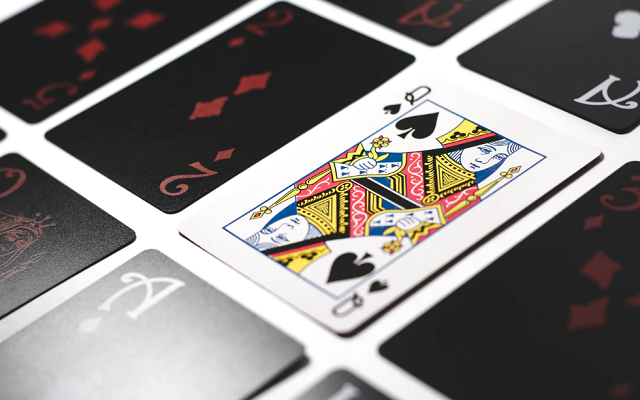Worldwide, blackjack is one of the most renowned card games found in casinos. From Monaco to Las Vegas to Macau, blackjack tables can be found dotting the floor beside baccarat, craps, and poker tables.
However, when it comes to actually playing the game, it’s sometimes treated as a fanfare. In other words, though many may take a seat and hope to hit blackjack, not many casino-goers consider themselves a habitual player.

Despite the public relationship to the game, blackjack tables across Macau brought in just over $365 million in 2019. Although blackjack only accounted for 30% of Las Vegas’s revenue in 2017, the game still brought in over $87 million in April 2017 alone.
Table of Contents
Can you get an edge?
These figures show that the game is popular, though, as mentioned, players are only sitting down at a table to enjoy a novel time. Given that the house always has the edge, it isn’t that surprising that many lose more than they win at the blackjack table.
However, blackjack is still celebrated as a game of skill because, while a player can’t alter the cards dealt, there are a handful of reliable strategies for those looking to hit and win. When it comes to succeeding at blackjack, a few case studies indicate that the game should be played like a business.
When looking at the game in this regard, it’s clear that sitting down at the table to play is only one facet of making a career out of blackjack.
Dealing with Casinos
Men like the infamous Don Johnson made their name and career by playing blackjack—no counting cards and MIT team required. While many today are staking their claim by starting with virtual blackjack online to take advantage of competitive deals, Johnson instead got his start with brick-and-mortar casinos.
Not only did he learn to play well, but he also enticed casinos from a business perspective, making deals that saw casinos offer high rollers solid rebates and stays on soft 17s. Those looking to take a deep dive into Johnson’s story can read this interesting look into Johnson’s antics or check out the article The Man Who Broke Atlantic City.
In short, he utilized the 2008 economic crises to leverage casinos into altering rules that offered him a mathematical edge, which included a 20% rebate on losses over $500,000.
Casinos in Atlantic City were desperate to stay afloat and agreed to Johnson’s terms in 2010. He then spent twelve hours playing at the Tropicana and wagered big at every chance. One bet, which included four splits worth $100,000 each, then resulted in another split that doubled the worth of the bet to $800,000.
The dealer busted, and Johnson was nearly $1 million in profit by the end of the session. All from setting his own terms. Johnson would eventually go on to earn a total of $15.1 million from playing at the Tropicana, Borgata, and Caesars, where he took home $6 million, $5 million, and $4 million respectively.
Though Johnson was a good player, he was an even better businessman. Were it not for his insistence that casinos sweeten the deal for high-roller players like himself, there would have been little incentive to keep hitting. After all, any smart entrepreneur knows the worth of risk. The odds need to be in your favor, and Johnson made it so.

Doing the Math
Another way to treat blackjack as a business is to count cards. Though not technically illegal in most casinos, counting cards has a tricky reputation in the industry. Investment legend Edward Thorp published his book, Beat the Dealer, in 1962, which detailed how to maximize winnings by tracking cards in blackjack.
Based on what the dealer has dealt and the cards other players have, players can speculate about which card the dealer will draw next. Thorp’s strategies resulted in the MIT Blackjack Team, which utilized car counting to legally beat the game.
From 1979 until the early 2000s, elite players from MIT and Harvard traveled the world in order to win big at casinos worldwide. The teams utilized various positions in order to track the cards being played and sometimes involved a rolling roster of up to 50 participants.
There are lessons here. Teamwork is one. Doing what it takes to gain an edge over competitors is another. But we wouldn’t say card counting correlates directly to how you should conduct business. Today, most of these teams have since dissolved or, in the least, retreated from the spotlight. Stick to Johnson’s method of making sure you get favorable terms.

